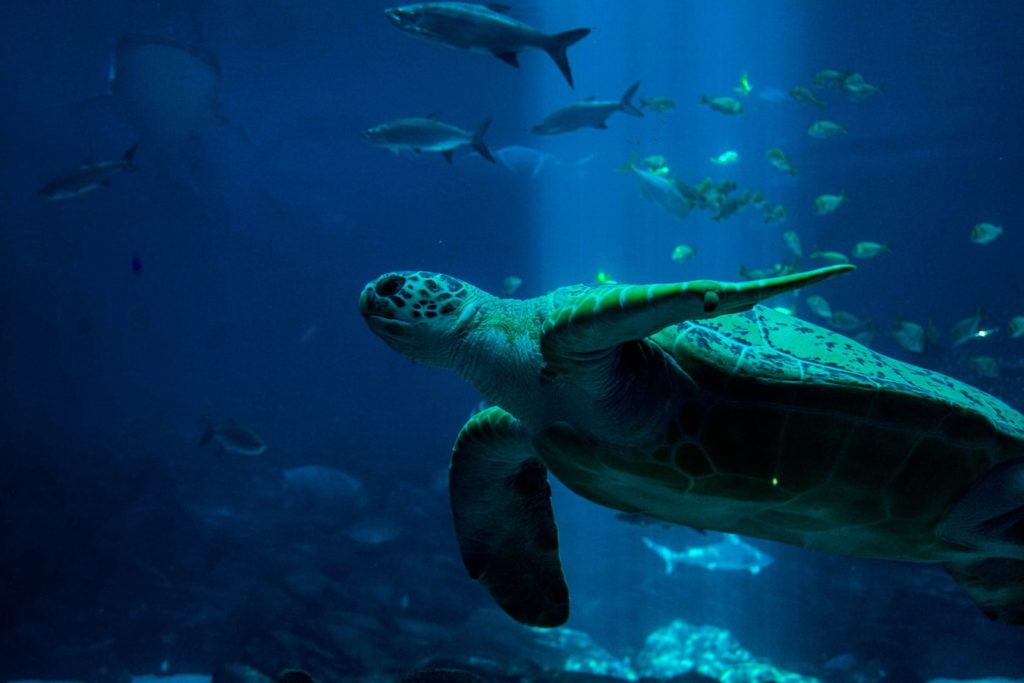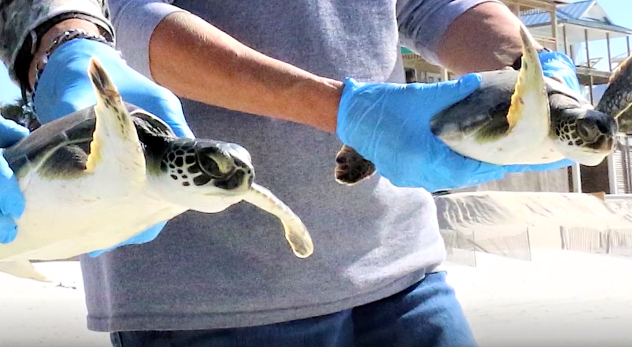Volunteers rehabilitate hundreds of cold-stunned sea turtles this winter.
“Cold stuns typically happen when water temperatures drop below 50 degrees Fahrenheit, causing sea turtles to show signs of hypothermia.”

The following written content by Chaffin Mitchell
It took until the middle of January for true Arctic air to arrive in the United States, but despite a late onset of the harshest cold, aquariums and rehabilitation centers across the country have already been busy responding to hundreds of cold-stunned sea turtles.
Cold stuns typically happen when water temperatures drop below 50 degrees Fahrenheit, causing sea turtles to show signs of hypothermia. Experts say this typically happens in enclosed basins such as estuaries since major bodies of water don’t typically cool down that much.
Sea turtles are not able to regulate body temperature, so a sudden cold snap can turn fatal if the animals become lethargic and experience decreased circulation, causing other body functions slow down.
When turtles are cold-stunned, they appear to be dead due to very little movement, if any at all. When they start to warm up and become active, it is an amazing sign for the staff at Gulf World Marine Institute in Panama City, Florida. AccuWeather’s National Reporter Kim Leoffler interviewed the institute’s stranding coordinator, Lauren Albrittan, to see how this winter season has affected the cold-blooded reptiles.
A sea turtle is examined on a table at the Sea Turtle Recovery hospital inside the Turtle Back Zoo in West Orange, N.J. Eleven of the dozen turtles being treated there survived being “cold-stunned” last November when temperatures abruptly plunged, shutting down their internal organs. (AP Photo/Wayne Parry)
“[We have] critically cold-stunned turtles,” Albrittan said. “What that means is most likely they have secondary infections or injuries or other illnesses other than just being too cold.”
If the turtles aren’t rescued by an organization like the Gulf World Marine Institute, cold-stunned sea turtles are more likely to be hit by boats, eaten by predators, become sick or die as their bodies shut down, according to the National Atmospheric and Oceanic Administration (NOAA).

“They also can be affected once they are floating or stranded by air and wind. If they do wash ashore overnight and it’s very cold and it’s very windy, that’s going to be more difficult to work with than an animal that does strand but the air isn’t that dramatically cold,” Albrittan said. Read more from AccuWeather.
Advertisement






